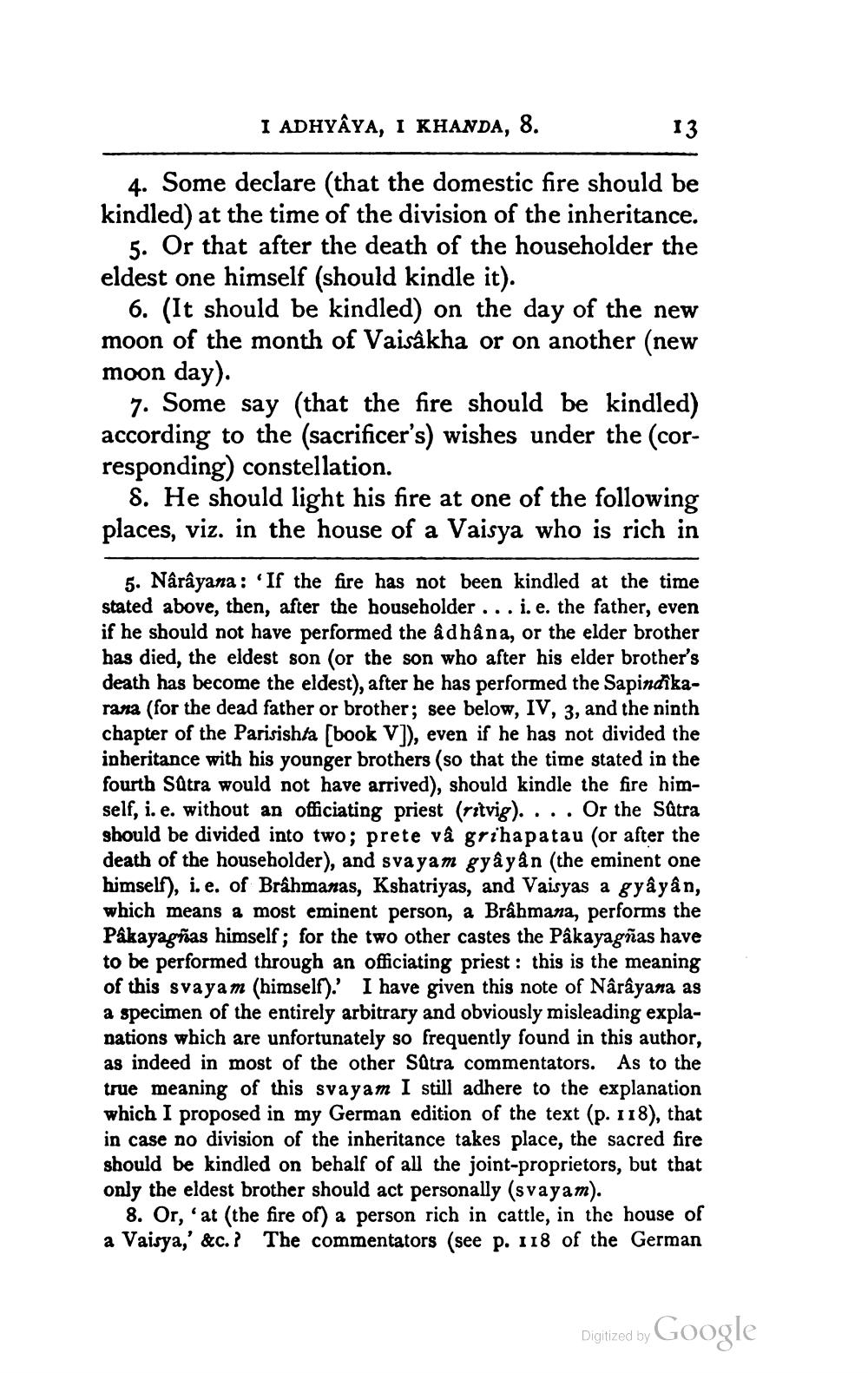________________
I ADHYAYA, I KHANDA, 8.
13
4. Some declare (that the domestic fire should be kindled) at the time of the division of the inheritance.
5. Or that after the death of the householder the eldest one himself (should kindle it).
6. (It should be kindled) on the day of the new moon of the month of Vaisakha or on another (new moon day).
7. Some say (that the fire should be kindled) according to the (sacrificer's) wishes under the (corresponding) constellation.
8. He should light his fire at one of the following places, viz. in the house of a Vaisya who is rich in
5. Nârâyana : 'If the fire has not been kindled at the time stated above, then, after the householder ... i.e. the father, even if he should not have performed the âdhâna, or the elder brother has died, the eldest son (or the son who after his elder brother's death has become the eldest), after he has performed the Sapindikarana (for the dead father or brother; see below, IV, 3, and the ninth chapter of the Parisishta book V1), even if he has not divided the inheritance with his younger brothers (so that the time stated in the fourth Sätra would not have arrived), should kindle the fire himself, i.e. without an officiating priest (ritvig). ... Or the Sätra should be divided into two; prete vâ grihapatau (or after the death of the householder), and svayam gyâyân (the eminent one himself), i.e. of Brahmanas, Kshatriyas, and Vaisyas a gyâyâ n, which means a most eminent person, a Brahmana, performs the Påkayagñas himself; for the two other castes the Pâkayagñas have to be performed through an officiating priest : this is the meaning of this svayam (himself). I have given this note of Narayana as a specimen of the entirely arbitrary and obviously misleading explanations which are unfortunately so frequently found in this author, as indeed in most of the other Sätra commentators. As to the true meaning of this svayam I still adhere to the explanation which I proposed in my German edition of the text (p. 118), that in case no division of the inheritance takes place, the sacred fire should be kindled on behalf of all the joint-proprietors, but that only the eldest brother should act personally (svayam).
8. Or, 'at (the fire of) a person rich in cattle, in the house of a Vaisya,' &c.? The commentators (see p. 118 of the German
Digitized by Google




